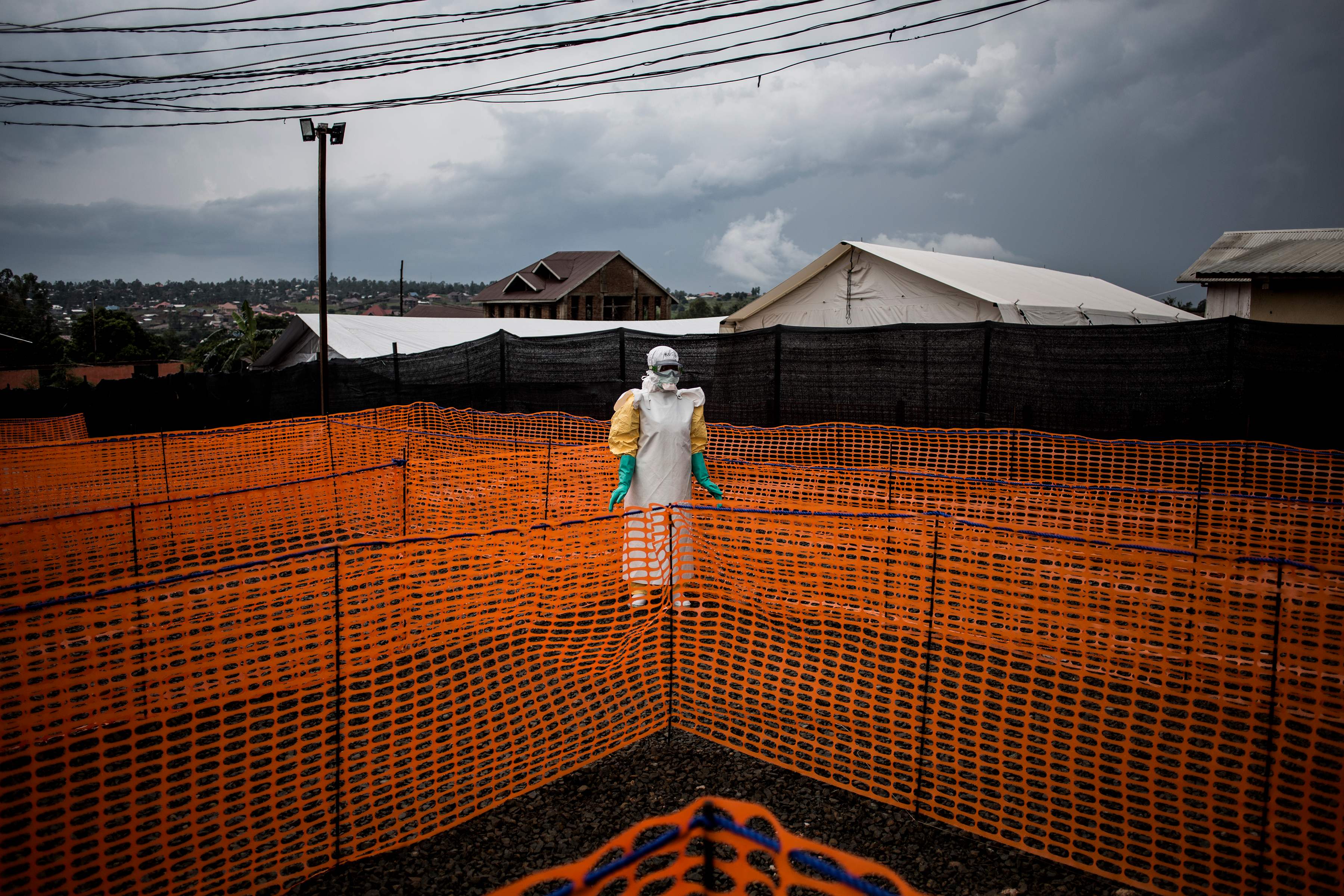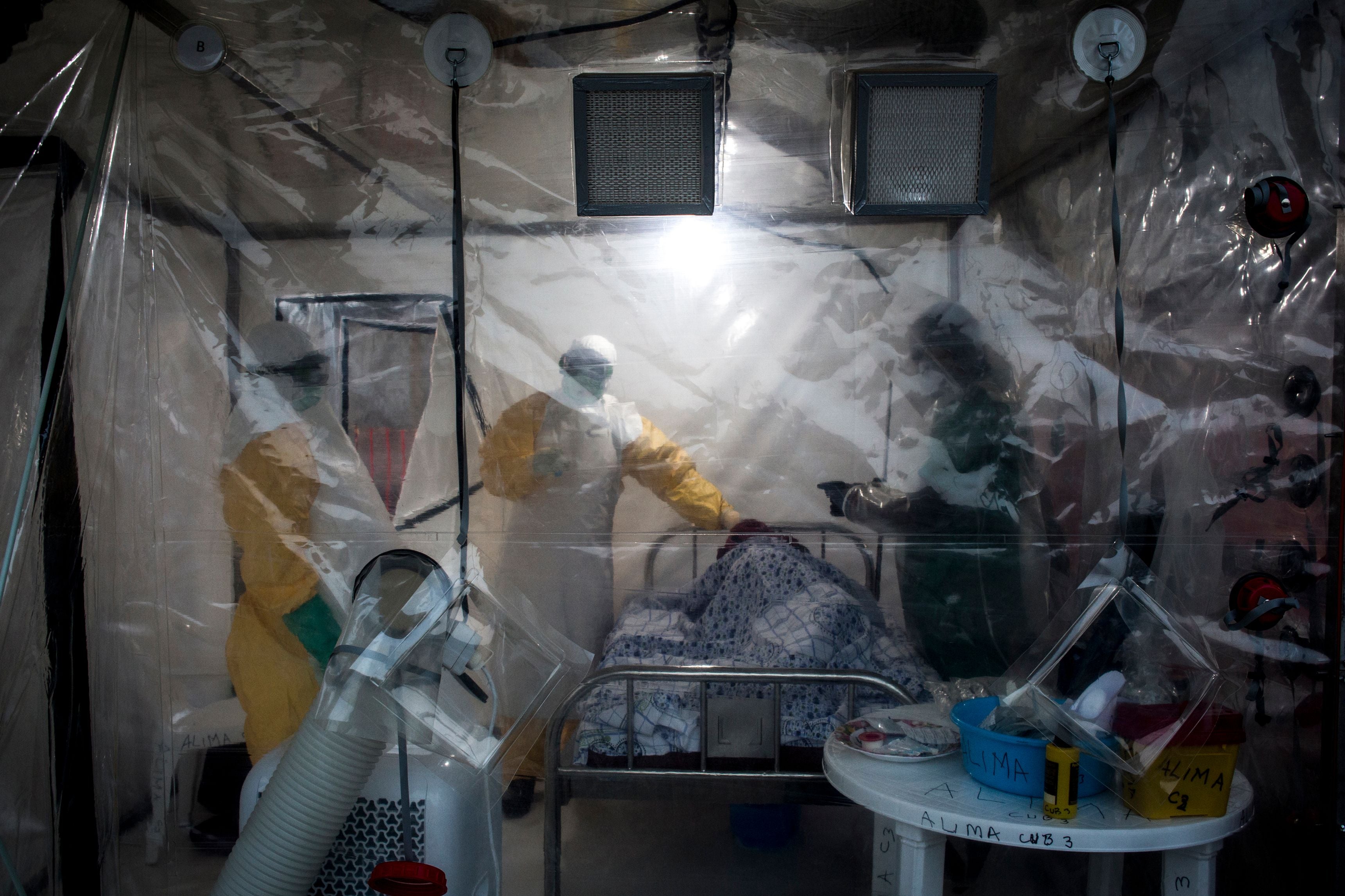Health officials in Congo battle to stop Ebola outbreak after woman dies from disease
Case comes just months after another outbreak elsewhere in DRC was declared over

Your support helps us to tell the story
From reproductive rights to climate change to Big Tech, The Independent is on the ground when the story is developing. Whether it's investigating the financials of Elon Musk's pro-Trump PAC or producing our latest documentary, 'The A Word', which shines a light on the American women fighting for reproductive rights, we know how important it is to parse out the facts from the messaging.
At such a critical moment in US history, we need reporters on the ground. Your donation allows us to keep sending journalists to speak to both sides of the story.
The Independent is trusted by Americans across the entire political spectrum. And unlike many other quality news outlets, we choose not to lock Americans out of our reporting and analysis with paywalls. We believe quality journalism should be available to everyone, paid for by those who can afford it.
Your support makes all the difference.Health officials are battling to prevent a resurgence of Ebola in the Democratic Republic of the Congo (DRC) after the death of a woman who tested positive for the virus.
Eteni Longondo, DRC’s health minister, said the 42-year-old victim died on 3 February in Butembo town in North Kivu province after falling sick several days earlier. She was taken to hospital but died before receiving test results confirming Ebola.
DRC newspaper Actualité reported the victim, a farmer who had fallen ill on 1 February, was transferred to Matanda Hospital in Butembo.
The case comes less than three months after another outbreak of the disease elsewhere in the country was declared over.
There are concerns that a resurgence of the disease at a time when Covid infections are still rife could cripple the country’s already fragile health system.
In November, an outbreak in the province of Equateur, in the northwest of the country, which claimed the lives of 55 people among 130 known infections, was officially ended. The declaration came 42 days after the last case tested negative twice.
That followed a 2018 outbreak in eastern Congo – the second deadliest in the world – which killed 2,299 people before it was declared over last June.
The World Health Organisation (WHO) said it was not unusual for sporadic cases to occur following a major outbreak and that health authorities were better prepared to respond to the disease thanks to previous outbreaks.
In a televised announcement on Sunday, Mr Longondo confirmed the woman’s death, saying Congo had suffered “another episode of this disease”, but urged people living in Butembo “not to panic”.
“Another national team will follow early next week. We are here. We will do everything to make this disease go away as soon as possible,” he said.
Officials are now attempting to trace the victim’s contacts and Unicef has also deployed additional staff to search for cases.
More than 70 contacts have already been identified and disinfection of the sites visited by the deceased woman is also underway.

While the source of contamination is not known, the woman who died was the wife of an Ebola survivor, according to the government.
The Ebola virus is highly contagious and can be contracted through bodily fluids such as vomit, blood, or semen.
The virus can live in the semen of male survivors for more than three years, according to a study in the New England Journal of Medicine. It can also survive in used medical instruments such as needles for a number of weeks.
”The expertise and capacity of local health teams has been critical in detecting this new Ebola case and paving the way for a timely response,“ said Dr Matshidiso Moeti, WHO regional director for Africa.
”WHO supports local and national health authorities to quickly trace, identify and treat contacts in order to curb the spread of the virus.”
The organisation is working to identify the strain of the virus to determine its link to the previous outbreak.
Jason Kindrachuk, an assistant professor at the department of medical microbiology and infectious diseases at Canada's University of Manitoba, who is conducting research on survivors from the 2014-2016 West Africa Ebola outbreak, the deadliest ever, said: “While there is hope that this early identification of an infection may help with quickly containing this outbreak, back-to-back Ebola outbreaks and Covid-19 has stretched Congo's health systems to the limit and this could put far greater strain on an already exasperated system.”
The European Centre for Disease Prevention and Control said in November the “risk of further flare-ups of cases [of Ebola] in the DRC remains”.
The agency added: “A combination of active and passive surveillance must be maintained for six months after the declared end of the outbreak. The virus remains endemic in the region as it is present in animal reservoirs in many parts of the country.”
On Sunday, DRC reported 72 Covid cases but no deaths. Since the start of the coronavirus pandemic last March, the central African nation has recorded 23,670 confirmed cases of the respiratory illness and 681 deaths.

Join our commenting forum
Join thought-provoking conversations, follow other Independent readers and see their replies
Comments